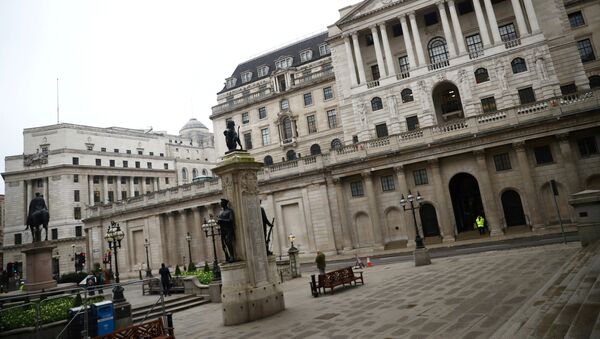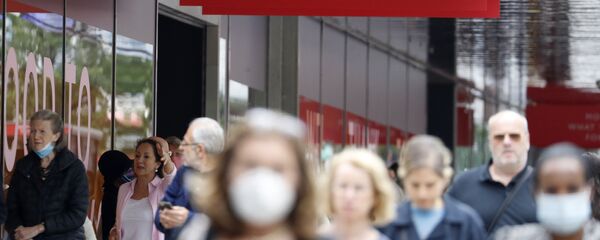The Bank of England (BoE) has increased its financial stimulus by 150 billion pounds ($195 billion) in an attempt to boost the country's economy as it enters a new four-week-long lockdown.
The Monetary Policy Committee also kept its main interest rate unchanged at the record low of 0.1%.
The stimulus is aimed at preventing the rise of borrowing rates in the economy to boost lending and ensure that money keeps flowing through the financial system.
A monthly survey of the UK’s dominant services sector issued by the IHS Markit/Cips on Wednesday showed that the UK's post-lockdown recovery throughout the summer stalled last month, leading to increased demands of the Bank of England to increase stimulus.
The same day, lawmakers in the United Kingdom's House of Commons voted overwhelmingly to approve the government's plan to introduce a four-week nationwide lockdown in England in order to curb the coronavirus disease.
The latest reports from the Office for National Statistics showed that the UK economy showed signs of recovery in August when it grew by 2.1 percent, but still, below the levels it had before the COVID-19 pandemic struck in February, while inflation rose to 0.5 percent in September, up from 0.2 percent in the previous month, influenced by transport costs and the end of the government's incentive scheme for the restaurant sector.





